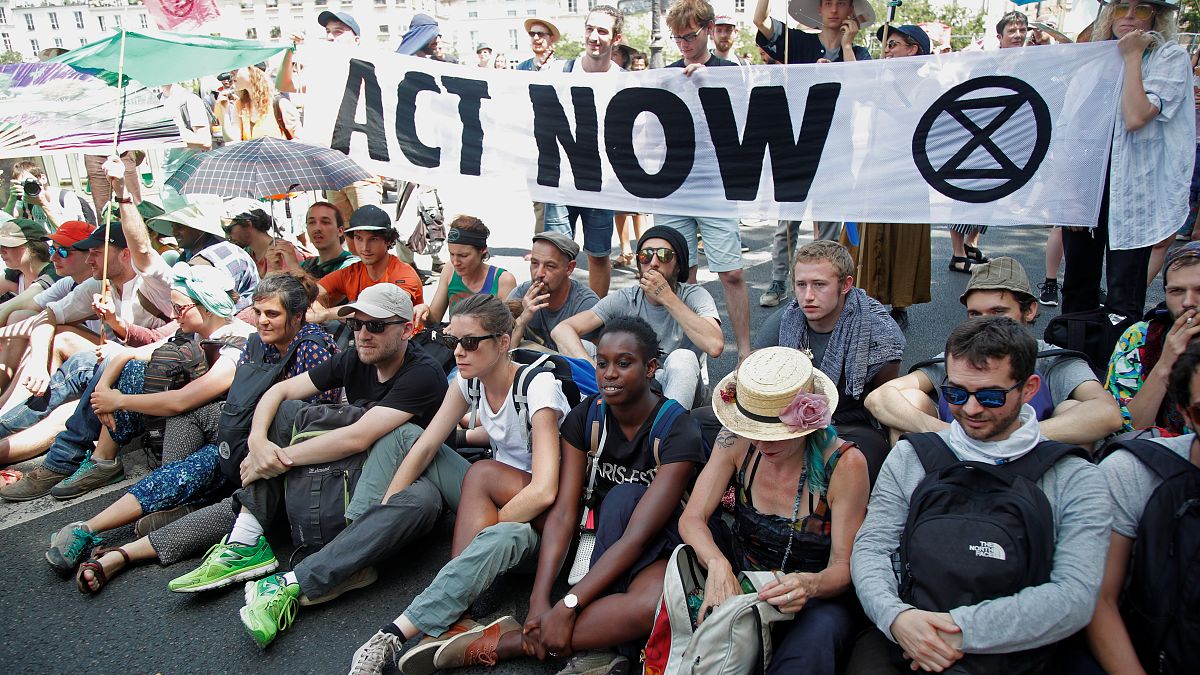Despite meeting during a record-breaking heatwave, delegates failed to make significant progress during UN climate change talks — and bowed to the demands of oil-producing countries over how to respond to a flagship scientific study.
Despite meeting during a record-breaking heatwave, delegates failed to make significant progress during UN climate change talks — and bowed to the demands of oil-producing countries over how to respond to a flagship scientific study.
A dispute erupted over how to treat the findings of a report by the Intergovernmental Panel on Climate Change on limiting global warming to 1.5 degrees Celsius (2.7F), the lower goal set in the 2015 Paris Agreement.
A handful of countries, led by Saudi Arabia, wanted to make note of uncertainties around the science in the study, which outlined potential harms if the 1.5C threshold was breached.
Under a compromise, delegates agreed to praise the 1.5C report as "the best available science" but closed the door to further formal discussion of its findings.
It caused dismay among delegates representing island nations who face an existential threat from rising sea levels linked to higher temperatures. The world is already around 1C hotter than pre-industrial times.
As negotiations ended in Bonn on Thursday evening, UN climate chief Patricia Espinosa reminded states they must deliver on the 2015 Paris Agreement, now ratified by 185 nations.
"People are demanding results — whether that's online or in the streets — and we must show we are taking responsibility," she said in a statement.
Delegates settled on a process for a December review of a key mechanism to address "loss and damage" caused by climate and weather extremes and rising seas.
And they inched forward on rules to put in place new markets for carbon credits, due to be finalised in Chile.
But it was not enough for many participants who highlighted how rising global temperatures are already super-charging water shortages in India, powerful storms hitting poor communities in Mozambique and other extremes.
Alden Meyer, strategy director with the Union of Concerned Scientists, said Saudi Arabia's move "can't prevent scientific fact from continuing to drive the heightened awareness among governments, the business community and the public of the need for an urgent response to the climate crisis".
'Arsonists at the table'
Burning of oil, coal and gas to produce energy by the power, industry and transport sectors is the main driver of the emissions heating up the planet.
Some developed countries, including the United States, Australia, the European Union and Norway, have consistently blocked the creation of a conflict of interest policy.
That continued in Bonn, according to campaign group Corporate Accountability, despite a letter signed by 300 environmental, development and transparency organisations calling on the countries to shift their stance.
"Everyone is running around talking about how the house is on fire, but the arsonists are still at the table," Nathan Thanki of the Global Campaign to Demand Climate Justice told journalists.
The next major opportunity for governments to make commitments to cut emissions further and faster, as well as putting new money on the table to help developing nations cope with climate change, will be at a September summit organised by the UN secretary-general.
Jean Su, energy director at the Center for Biological Diversity, said the main obstacle to "real climate action" was "the sheer lack of political will".
"We urge world leaders to listen to the millions of people in the streets and act with humanity and courage to turn this crisis around," she said.


